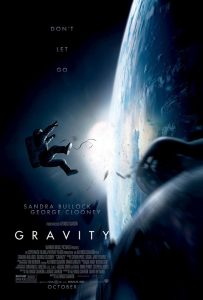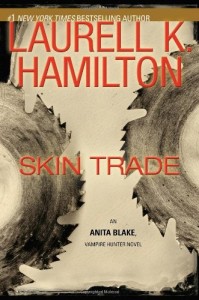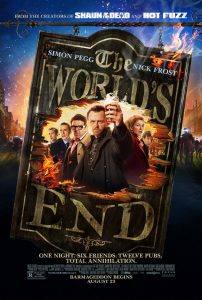 Another month, another book club book. This time out, a horribly dystopian near-future examination of some religious dudes stealing everything from women. You know, to save them from how cruel the world can be. I must say, despite taking a while to get to a point where it was believable, The Handmaid’s Tale seemed utterly plausible from then on. Due to plummeting birthrates and the aforementioned (aforeimplied?) enslavement of functionally all females in the nation, our mostly-nameless
Another month, another book club book. This time out, a horribly dystopian near-future examination of some religious dudes stealing everything from women. You know, to save them from how cruel the world can be. I must say, despite taking a while to get to a point where it was believable, The Handmaid’s Tale seemed utterly plausible from then on. Due to plummeting birthrates and the aforementioned (aforeimplied?) enslavement of functionally all females in the nation, our mostly-nameless heroine viewpoint character heroine has been enrolled as a Handmaid; which is to say that, Genesis-style, she acts as a stand-in for the wife of one of the high muckety-mucks of the fictional future nation of Gilead, so they may be fruitful and multiply. Keeping in mind the disdain these people have for fertility clinics (or, indeed, science), well, my point is to say, yes. That is every bit as horrible as you’re imagining it to be.
The rest of the story, with its leisurely revelations of the world Atwood has built[1] and its insistence on hitting the reader with one terrible event after another, is a surprisingly difficult slog. Well, if you’re looking at the size of the book it is, anyway. If you’re considering the emotional toll of the things I’ve mentioned and taking me at my word that I’ve left out five or ten reveals for every one that I’ve spoiled so far, well, it’s easy to see why the emotional density of the book makes for a slow, miserable read.
The worst part is, it was extremely good and I wanted to know what would happen. If only it had read as badly as it made me feel and I could have quit a few chapters in!
[1] She revealed things far more leisurely than I just have! In my defense, I’ve still only scratched the tip of the iceberg.

 And then I finally saw a new movie, for the first time in I really don’t want to look up how many months.
And then I finally saw a new movie, for the first time in I really don’t want to look up how many months. 



 See, I even sort of have a couple of things to say about
See, I even sort of have a couple of things to say about  I made the mistake of watching a movie the day before I vanished from the internet for a week and a half, and I made the further mistake of not writing the damned review before said vanishment. So, um, sorry about that.
I made the mistake of watching a movie the day before I vanished from the internet for a week and a half, and I made the further mistake of not writing the damned review before said vanishment. So, um, sorry about that.